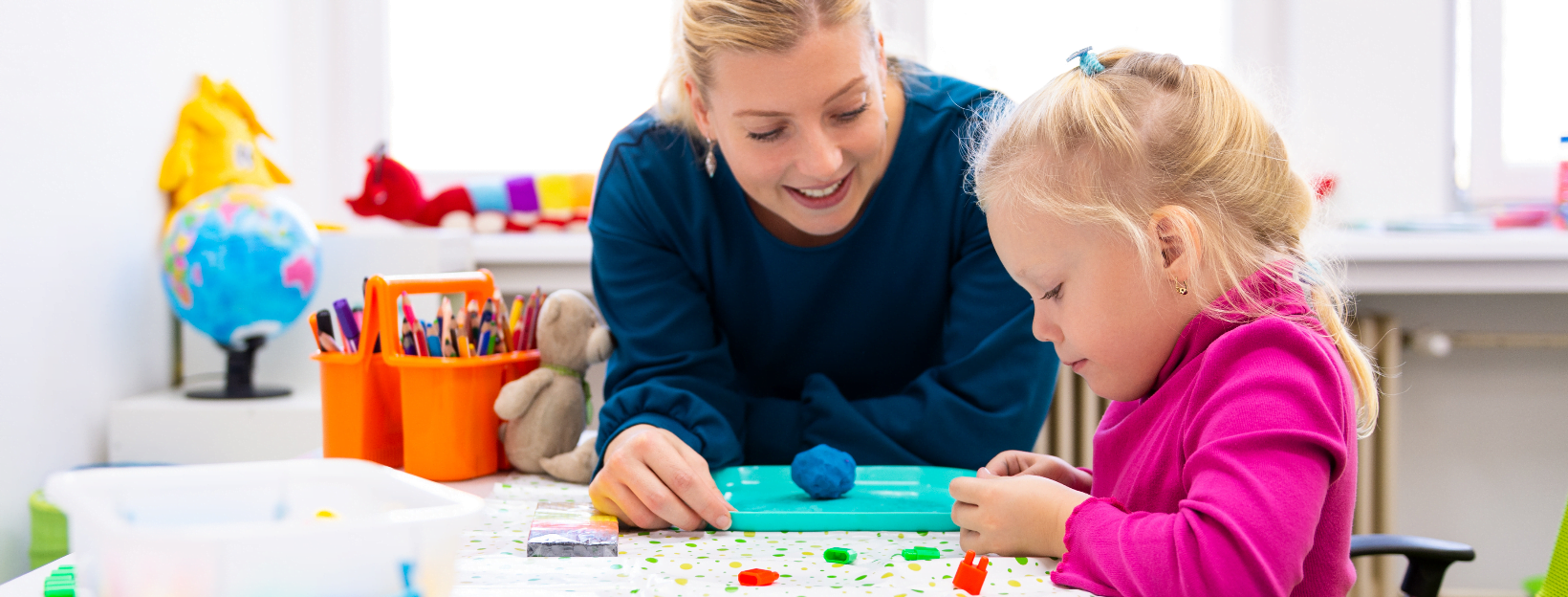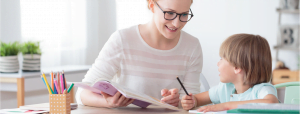The Impact of Covid-19 Pandemic on Childhood Development
Did you know? A UNESCO report found that 138 countries closed schools nationwide due to the Covid-19 pandemic impacting the education of 80% of children worldwide? Pre-school children appeared to be more impacted with increased reports of conduct concerns and symptoms of hyperactivity/inattention (Murdoch Children’s Research Institute, 2022).
The impact of childhood development can span across these key areas:
- Behaviour
- Sensory & Emotional Regulation
- Fine Motor
- Gross Motor
- Social Skill Development
Because of this impact, it is important to ensure your child’s classrooms along with their spaces at home are best equipped to support their childhood development.
SETTING UP THE ENVIRONMENT
The pandemic reduced children’s chances to engage in a variety of activities which resulted in a reduction in learning opportunities for their childhood development. Young children learn through play, so ensure your child’s classroom and space at home has a variety of different toys set up and provided to encourage play and provide chances to learn.
It is important to consider the developmental stage of your child ‘s development when assessing their school classroom and your spaces at home, so as a start, we have put together a guide on the different ways different age groups can be engaged by their teachers at school and with you at home.
- Newborns and babies (0-12 months)
- Tummy time is very important for young babies.
- Music, songs, and noisy toys are great to develop hearing and movement.
- Peekaboo, gentle tickles and hiding games are good for social emotional development.
- Exposing the baby to different textures and different sized objects helps them practice different grasps.
- Having toys for babies to crawl towards such as balls, light up toys and anything that is of interest to the – Cause-and-effect toys are great for childhood development at this age!
- Having sturdy furniture that is closer to the ground for babies to practice standing with.
- Toddlers (12 months – 2 years)
- Functional play skills lay the foundation for social skills in childhood development. Teach children to play with different themes like trains, baby play, doctors play, farm animals and Duplo for example.
- Have large and light things like cardboard boxes, buckets, or blow-up balls for children to push, build and drag.
- You want to provide them with lots of opportunities to develop and practice gross motor skills like climbing frames, piles of pillows, hoops, tunnels – anything that encourages running and jumping.
- Dress up games are a fantastic way to encourage imagination. It doesn’t need to be a specific costume, as random items are best to encourage imagination.
- Play music! Encourage children to dance, sing, clap and do actions that go along with songs.
- Pre-schoolers/Kindy Age (2-4 years)
- Provide these children with a bunch of random items and see how they use their imagination in unstructured play. Milk containers, wooden spoons, old cloths and scrunched up paper are great for this.
- Introduce simple puzzles and matching games to develop visual perceptions, memory, and concentration.
- To assist in the development of fine motor skills, activities like play dough, threading, and pegging are all excellent.
- Have balls around to encourage throwing, catching, and kicking.
- Read books and discuss the stories afterwards.
Don’t forget, no matter what age, you and your child’s teachers are the best resource for their childhood development! Here is how you can get involved to be a great resource for your child’s development:
- Model play actions and language for your child. Narrate the play rather than direct it. For example, rather than telling your child to ‘drive the car’ demonstrate by saying ‘broom broom, let’s go for a drive to the supermarket’
- Make play fun, and if you are enjoying it, chances are your child will be more eager to engage also.
- Follow your child’s lead – imitate their play actions and extend on them by adding your own.
- Remember, sometimes less is more. Strategically limit resources to encourage imagination and sharing. For example, don’t have enough balls so there is enough for one per child, have less available so they have a chance to practice negotiation and sharing with friends, siblings, classmates, and others.
HOW NATIONAL 360 CAN SUPPORT CHILDHOOD DEVELOPMENT
For childhood development, National 360 offers early intervention (children up to 7 years) and services for older children (7 + years) and teenagers (12 – 18 years). You may be looking for assistance from one service such as occupational therapy, or we can support you with a multidisciplinary approach where you may receive a combination of therapies such as occupational therapy, physiotherapy, speech pathology and behaviour support.
Want to learn more about how you can assess your child’s classroom, and ensure you are encouraging their childhood development both at school and at home?
Find out more about our paediatric services, or if you are ready to make a referral fill out our contact form below or simply call 1300 340 440.
REFERENCE:
Centre for Community Child Health. (2022). The impact of the COVID-19 pandemic on children in Australian early childhood education and care. Rapid review prepared by the Centre for Community Child Health, Murdoch Children’s Research Institute for the Commonwealth Department of Education, Skills and Employment. You can read the research here.



